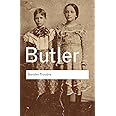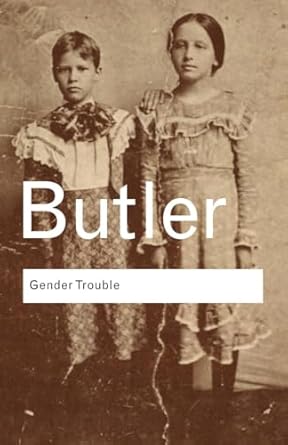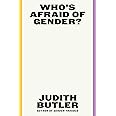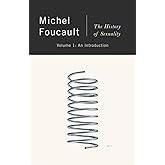
Amazon Prime Free Trial
FREE Delivery is available to Prime members. To join, select "Try Amazon Prime and start saving today with FREE Delivery" below the Add to Cart button and confirm your Prime free trial.
Amazon Prime members enjoy:- Cardmembers earn 5% Back at Amazon.com with a Prime Credit Card.
- Unlimited FREE Prime delivery
- Streaming of thousands of movies and TV shows with limited ads on Prime Video.
- A Kindle book to borrow for free each month - with no due dates
- Listen to over 2 million songs and hundreds of playlists
Important: Your credit card will NOT be charged when you start your free trial or if you cancel during the trial period. If you're happy with Amazon Prime, do nothing. At the end of the free trial, your membership will automatically upgrade to a monthly membership.
Buy new:
-23% $20.72$20.72
Ships from: Amazon Sold by: ayvax
Save with Used - Good
$17.98$17.98
Ships from: Amazon Sold by: Crossroads Marketplace

Download the free Kindle app and start reading Kindle books instantly on your smartphone, tablet, or computer - no Kindle device required.
Read instantly on your browser with Kindle for Web.
Using your mobile phone camera - scan the code below and download the Kindle app.



 Audible sample
Audible sample Gender Trouble: Feminism and the Subversion of Identity (Routledge Classics) 1st Edition
Purchase options and add-ons
One of the most talked-about scholarly works of the past fifty years, Judith Butler’s Gender Trouble is as celebrated as it is controversial.
Arguing that traditional feminism is wrong to look to a natural, 'essential' notion of the female, or indeed of sex or gender, Butler starts by questioning the category 'woman' and continues in this vein with examinations of 'the masculine' and 'the feminine'. Best known however, but also most often misinterpreted, is Butler's concept of gender as a reiterated social performance rather than the expression of a prior reality.
Thrilling and provocative, few other academic works have roused passions to the same extent.
- ISBN-109780415389556
- ISBN-13978-0415389556
- Edition1st
- PublisherRoutledge
- Publication dateJuly 11, 2006
- LanguageEnglish
- Dimensions5.08 x 0.62 x 7.8 inches
- Print length272 pages
Discover the latest buzz-worthy books, from mysteries and romance to humor and nonfiction. Explore more
Frequently bought together

More items to explore
Editorial Reviews
Review
‘Indispensable for feminist theory.’ - Hypatia
‘At times brilliant, always groundbreaking, Gender Trouble is bound to make some trouble of its own.’ - Outweek
‘The most authoritative attack to date on the "naturalness" of gender. This is a brilliant and innovative book.’ - Sandra Lee Bartky
'Rereading this book, as well as reading it for the first time, reshapes the categories through which we experience and perform our lives and bodies. To be troubled in this way is an intellectual pleasure and a political necessity.' - Donna Haraway
About the Author
Product details
- ASIN : 0415389550
- Publisher : Routledge; 1st edition (July 11, 2006)
- Language : English
- Paperback : 272 pages
- ISBN-10 : 9780415389556
- ISBN-13 : 978-0415389556
- Lexile measure : 1580L
- Item Weight : 2.31 pounds
- Dimensions : 5.08 x 0.62 x 7.8 inches
- Best Sellers Rank: #28,258 in Books (See Top 100 in Books)
- #31 in Literary Criticism & Theory
- #45 in Feminist Theory (Books)
- #46 in General Gender Studies
- Customer Reviews:
About the author

Judith Butler is Distinguished Professor in the Graduate School at the University of California, Berkeley. They are the author of Subjects of Desire, Gender Trouble: Feminism and the Subversion of Identity, Bodies that Matter, Undoing Gender, The Psychic Life of Power, Precarious Life, Parting Ways: Jewishness and the Critique of Zionism, Frames of War, Senses of the Subject, The Force of Nonviolence, What World is This? A Pandemic Phenomenology, and Who's Afraid of Gender? Co-edited volumes include: Contingency, Hegemony, Universality with Slavoj Zizek and Ernesto Laclau; Vulnerability in Resistance, with Leticia Sabsay and Zeynep Gambetti. Co-authored books include: Who Sings the Nation-State? with Gayatri Chakravorty Spivak, Dispossession, with Athena Athanasiou, and The Livable and the Unlivable, with Frederic Worms.
"
Customer reviews
Customer Reviews, including Product Star Ratings help customers to learn more about the product and decide whether it is the right product for them.
To calculate the overall star rating and percentage breakdown by star, we don’t use a simple average. Instead, our system considers things like how recent a review is and if the reviewer bought the item on Amazon. It also analyzed reviews to verify trustworthiness.
Learn more how customers reviews work on AmazonCustomers say
Customers find the book insightful and thought-provoking. They describe it as a classic exploration of gender that has profoundly impacted feminist theory. However, some readers find the writings difficult to understand and dense.
AI-generated from the text of customer reviews
Customers find the book well worth reading. They say it's an important read for anyone interested in performance theory. The language is precise and adequately summarizes the content. Readers describe it as one of the most important texts they have ever read.
"...It is essential reading for anyone interested in feminist theory, gender studies, or the politics of identity." Read more
"...Her language is very precise and adequately, not only sums up, but picks apart very complex ideas such as Lacan’s phallogocentrism, the Oedipus..." Read more
"...approaches in a gender/queer theory discourse this is a good book to read." Read more
"...However, if these ideas interest you, then it's well worth your time to give it a try." Read more
Customers find the book thought-provoking and insightful. It provides a deep analysis of gender construction and complex ideas, such as Lacan's phallogocentrism. Readers recommend it for research and theory purposes. The author is described as thoughtful and intelligent, making it an important read for those interested in the topic.
"...Butler's writing is both intellectually stimulating and thought-provoking, offering a deep analysis of how gender is constructed and performed in..." Read more
"...The book is structured exceptionally, examining a number of different philosophers’ conceptions of gender and dismantling them and then gradually..." Read more
"...Recommended as a research and theory book or for anyone interested in the very current topic of gender studies." Read more
"...Butler's analysis raises great questions and challenges for traditional approaches to subjectivity...." Read more
Customers find the book insightful and a good introduction to gender and queer theory. They say it deconstructs the performance of gender well and is well-versed in feminist theology. The author uses a mix of philosophical inquiry, literary theory, and political analysis to explore the topic.
"...She uses a mix of philosophical inquiry, literary theory, and political analysis to explore the ways in which gender is enforced and resisted...." Read more
"...Butler presents very compelling arguments about gender, sexuality, and gender construction/performance, that will definitely alter the way you think..." Read more
"...for anyone interested in learning more about homosexuality, gender and gender roles...." Read more
"Judith Butler is well versed in feminist theology -- the only reason she didn't get all five stars from me is her writings are somewhat complex and..." Read more
Customers find the book difficult to understand and complex. They describe it as wordy, jargon-filled, and not suitable for lay readers. Readers also mention that the book contains typos and is difficult to get through.
"Butler gets a lot of flak for being a dense writer, and has "won" some award for being the most indecipherable to read; it's a lot of hype...." Read more
"...reason I didn't give this book five stars is because it’s so difficult to understand...." Read more
"This book is very dense and difficult to get through. However, if you stick with it, you'll be glad you did!..." Read more
"...should have a copy of this book... even though it's almost impossible to read. The cover has a pleasing rubbery/matte finish too." Read more
Reviews with images
Heads up! Page count discrepancy in same ISBN, different distributors!
Top reviews from the United States
There was a problem filtering reviews right now. Please try again later.
- Reviewed in the United States on February 14, 2024This book is a seminal work that challenges conventional notions of gender and identity. Butler's writing is both intellectually stimulating and thought-provoking, offering a deep analysis of how gender is constructed and performed in society. Her ideas have had a profound impact on feminist theory and have sparked important conversations about gender norms and roles.
One of the strengths of "Gender Trouble" is Butler's ability to deconstruct complex ideas in a way that is accessible to readers. She uses a mix of philosophical inquiry, literary theory, and political analysis to explore the ways in which gender is enforced and resisted. Her argument that gender is performative, meaning that it is something we do rather than something we are, is particularly compelling and has influenced a generation of scholars and activists.
However, some readers may find Butler's writing style dense and challenging at times, especially if they are not familiar with the theoretical frameworks she draws upon. Additionally, her ideas have been critiqued for being overly abstract and disconnected from the experiences of marginalized individuals.
Overall, "Gender Trouble" is a groundbreaking work that continues to be relevant today. It is essential reading for anyone interested in feminist theory, gender studies, or the politics of identity.
- Reviewed in the United States on August 25, 2023This was one of my first toe-dippings into feminist thought. I’m acquainted with a wide range of philosophical sub-disciplines (phenomenology, German idealism, post-colonial studies, etc), but feminist thought was fairly new to me. Beware, Butler is not pop-philosophy; she is a serious academic covering a wide range of thinkers such as Lacan, Irigaray, Freud, and others in very technical language.
I disagree with those tho say she is purposefully convoluted in her syntax and diction—in a manner not too dissimilar from those accusations volleyed against Hegel. Her language is very precise and adequately, not only sums up, but picks apart very complex ideas such as Lacan’s phallogocentrism, the Oedipus Complex’s creation of gender, various feminist movements seeking to ground femininity in a universal female identity, etc.
Butler’s project is nothing less than to expand upon the idea of the gender spectrum in a philosophically rigorous way. She envisions a future for feminist which is coalitional, in which identity’s fluidity is accepted and utilized as the ultimate backbone to representation. While she also only mentions the idea of gender identity being fluid rather briefly, it’s safe to say that this is also a key element of her work here.
The book is structured exceptionally, examining a number of different philosophers’ conceptions of gender and dismantling them and then gradually synthesizing a fuller theory of gender as a fictitious category used to bare certain people’s ability to be represented. Please read this, it’s definitely worth the time!
- Reviewed in the United States on November 13, 2013Butler gets a lot of flak for being a dense writer, and has "won" some award for being the most indecipherable to read; it's a lot of hype. She is not easily accessible but with some work you can get at it. This isn't the place for a full on analysis, review & such, that you can find elsewhere alongside critiques. Bottom-line if you're interested in postmodern/poststructural approaches in a gender/queer theory discourse this is a good book to read.
- Reviewed in the United States on March 14, 2016Butler is of course incredibly thoughtful and intelligent, and an important read for anyone interested in gender theory/performativity/feminist studies. However, this particular edition had an annoying number of typos; I'm not sure if it was proofread.
- Reviewed in the United States on July 7, 2022The crux of Gender Trouble is Butler's challenge to feminists to take on the task of revealing the ways the gender binary of male/female is produced, regulated, and naturalized instead of simply reifying this binary by making “women” the subject of feminism. After all, it's this very binary that has led to the oppression of half the population.
Butler argues that feminists should shun an identity-based politics focused on representation and unity and, instead, embrace a politics directed at achieving concrete goals. By not demanding people adopt a unified identity, this type of open coalition is less coercive and repressive, particularly for those individuals who have other marginalized identities related to race, class, or disability status.
Butler argues if gender—masculinity and femininity—is understood to be a cultural construct, it’s reasonable to propose that physical bodies are defined through this same cultural lens. Hence, gender is not the cultural interpretation of an essential sex; sex itself is a gendered category.
Butler presents the concept of the “matrix of intelligibility” whereby individuals only become intelligible by conforming to the cultural expectations of gender, sex, and desire where biological sex determines gender, and sex and gender determine desire—i.e. sexual orientation. She points out that the fact that many people do not conform to this matrix is not a failure on the part of these individuals; rather, their very existence challenges the validity of this matrix.
It's in this book that Butler introduces her original concept of "gender performativity," which is the idea that the constant repetition of stylized acts creates the illusion that there is a substantive gender. In other words, gender is real only to the extent that it's continually performed. And all of us are performing gender in response to the cultural norms that exist, whether we are each aware of doing so as a transgender person or not aware of doing so as a cisgender person.
The only reason I didn't give this book five stars is because it’s so difficult to understand. However, if these ideas interest you, then it's well worth your time to give it a try.
Top reviews from other countries
-
 Leda M. V. MachadoReviewed in Brazil on June 21, 2021
Leda M. V. MachadoReviewed in Brazil on June 21, 20215.0 out of 5 stars Trabalho seminal
Trabalho seminal.
 ForlornehopeReviewed in the United Kingdom on November 8, 2021
ForlornehopeReviewed in the United Kingdom on November 8, 20215.0 out of 5 stars Vital reading for anyone concerned about gender issues
Anyone who has read “Trans”, “Material Girls” or “Delusions of Gender” should read this book by Judith Butler. Without this it is impossible to understand what gender theory is about, what it is based on and where it comes from. Butler’s style makes it difficult to pick out quotations that summarise their thesis without writing out complete pages however there are some short passages that do contain key messages:
“If gender attributes, however, are not expressive but performative, then these attributes effectively constitute the identity they are said to express or reveal.”
“Genders can be neither true nor false, neither real nor apparent, neither original nor derived.”
It is very important to grasp the nebulous and slippery nature of gender in their Weltanschauung. This is not really picked up in the “gender critical” literature and they would do a better job if they addressed it. However, Butler’s thought does not stop with gender because they apply similar reasoning to sex:
“This construct called sex is as culturally constructed as gender, indeed, perhaps it was always already gender with the consequence that the distinction between sex and gender turns out to be no distinction at all.”
“Cultural configurations of sex and gender might then proliferate...confounding the very binarism of sex and its fundamental unnaturalness.”
Approaching a book that is described as fundamental to gender theory the naive reader might expect to find an exposition of the issues of biology, psychology and sociology supported by facts and data. This would be to fundamentally misunderstand Butler’s academic approach. Butler starts by making clear that the purpose of the book is above all political; it is to disrupt the prevailing orthodoxy that in their opinion limits the full development of the feminist project. Butler bases their analysis on post war French thought, which others might loosely describe as “post-modernist” though they do not. Specifically Butler acknowledges post-structuralism and psycho-analytic theory as their tools. They draw on, and criticise, the work of the French thinkers Lévi-Strauss (nothing to do with jeans!), Foucault (nothing to do with pendulums), Lacan, Kristeva and Wittig.
The style of thinking applied by Butler and their sources does not so much contradict the scientific approach as simply ignore it. A reader must decide for themselves if this is valid. Freud’s psycho-analytic theories are based on little more than anecdotes and research on his notes and other sources has shown that even his reports were “adjusted” to fit his pre-conceived theories. Anything drawing on this as a basis requires significant justification. The post-structuralist approach by contrast is unconcerned with the kind of evidence that a physical or social scientist would require to support any theory. Instead of facts and data what the reader gets from Butler, and their sources, are unsupported assertions on which is built an edifice of theory that can neither be proved nor falsified. The only validity can be in the self explanatory nature of the premises and the validity of the arguments which are built on them.
Butler takes on the science at one point by discussing a piece of work by David Page on the genetics of XX Males. This was an early study published in 1987 over a decade before the human genome project even started. It had been superseded before the publication of Gender Trouble in 1990 and subsequent work has developed a good understanding of the subject. By 1999 when the revised edition was published Butler left the argument in place without updating it. Butler's discussion around the subject demonstrates a fundamental failure to understand how science works which is not uncommon among people, however intelligent or well educated in other areas, who have limited education in the sciences (either physical or social).
Whether the reader accepts or rejects Butler’s thesis probably depends more than anything on the reader’s own background. Anyone educated in a science based discipline would read the book searching in vain for something that looked like evidence and would be likely to dismiss it as vapidity concealed by verbosity. A person steeped in what we might loosely term post-modernism and its offspring might well find their approach convincing. Butler makes it clear that in their view gender is performative it is not a real attribute of a person indeed personal identity comes from the performance, the performance makes the performer and not vice-versa. They claim that biological sex is itself a construct and synonymous with gender. For this they present no evidence other than the kind of cherry-picking much beloved of tobacco apologists, climate-change deniers and anti-vaxxers. In fact the work by David Page and others has continued over the last 30 years. With the vastly improved ability to analyse genetic material, a wide range of variations in sexual development has been studied. The incidence of significant variation is extremely low and all of these variants fall clearly into the category of male or female – it’s not a spectrum.
It is not unreasonable to conclude that something as nebulous as Butler’s concept of gender cannot possibly be used to inform public policy. Whether we have to decide on participation in sports or incarcerations in prisons something that is a performance with no fundamental reality can hardly be the deciding factor when set beside the objective facts of biology.
For those who are unfamiliar with the way that science really works I have a couple of recommendations:
“Vaxxers” by Catherine Green and Sarah Gilbert (the development of the Oxford vaccine)
“The Code Breaker” by Walter Isaacson (Janet Doudna and the story of CRISPR)
-
 mmmmmmmmReviewed in France on June 28, 2021
mmmmmmmmReviewed in France on June 28, 20215.0 out of 5 stars Bon produit
Non produit
 GeetanjaliReviewed in India on September 23, 2017
GeetanjaliReviewed in India on September 23, 20175.0 out of 5 stars Groundbreaking Book in the established idea of gendered confinement
This is quite brilliant book by one of the finest philosophers of our time. I am very much interested in Butler's writings. This one is a must read book on Gendered Reality and "troubled gender conformation"and for those who are interested in Butler's theory. It's a bit difficult and advanced in its language and concept. But I really enjoyed this book.
 LauraReviewed in Italy on January 5, 2017
LauraReviewed in Italy on January 5, 20175.0 out of 5 stars Seminal gender theory book
THE book to read before delving into gender theory.
Of course Showalter, Wittig and Irigaray should be read first, at least partially, but Gender Trouble is certainly the book right after them.
This is an academic work and those who bemoan the lack of easily understandable writing style should keep this in mind. It was written for an academic environment.
I'm not saying that it's an impossible reading otherwise, certain passages are more straightforward than others, but keeping its origin in mind, in my opinion, can help with some of the more scholarly ponderings.













